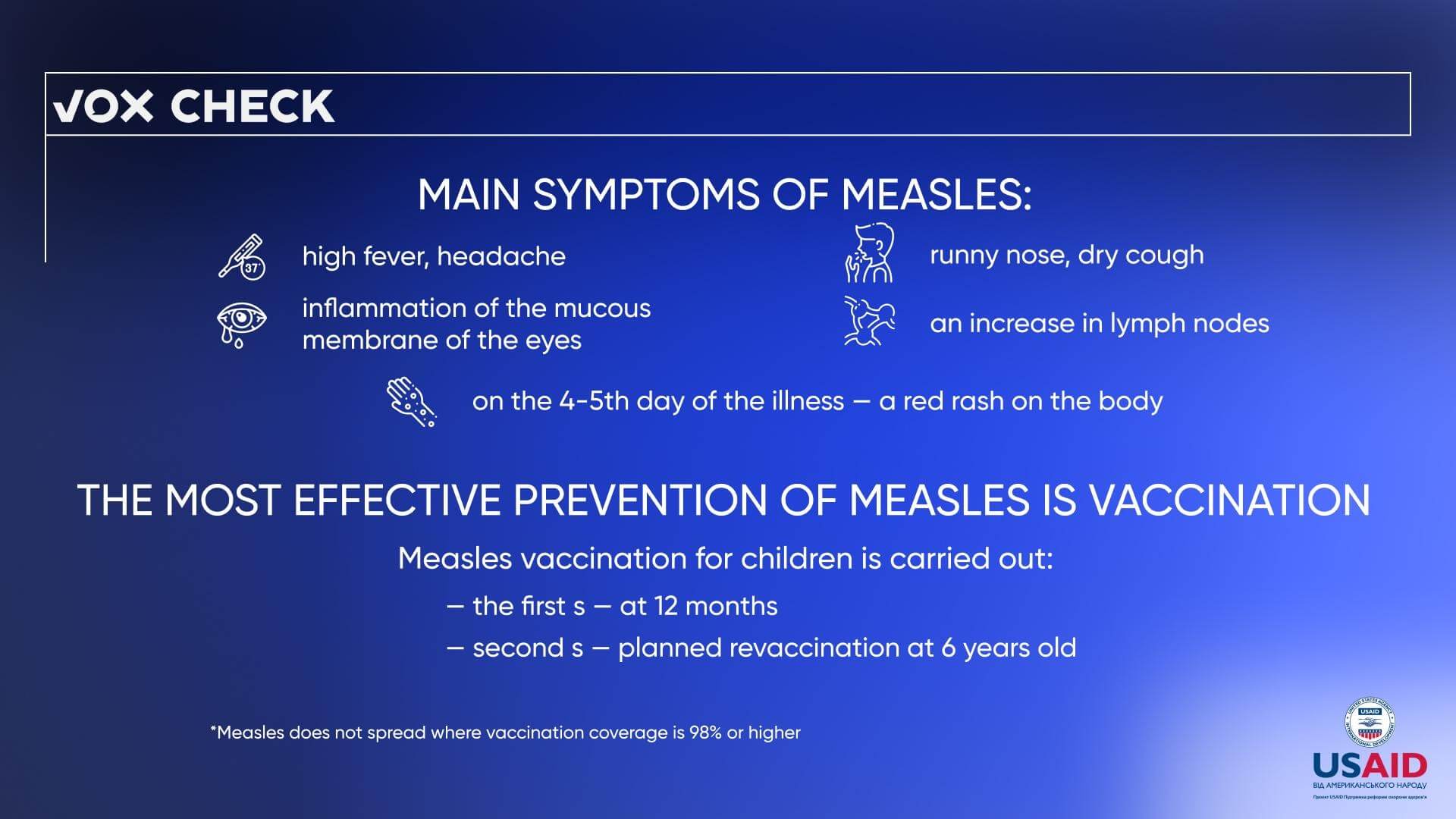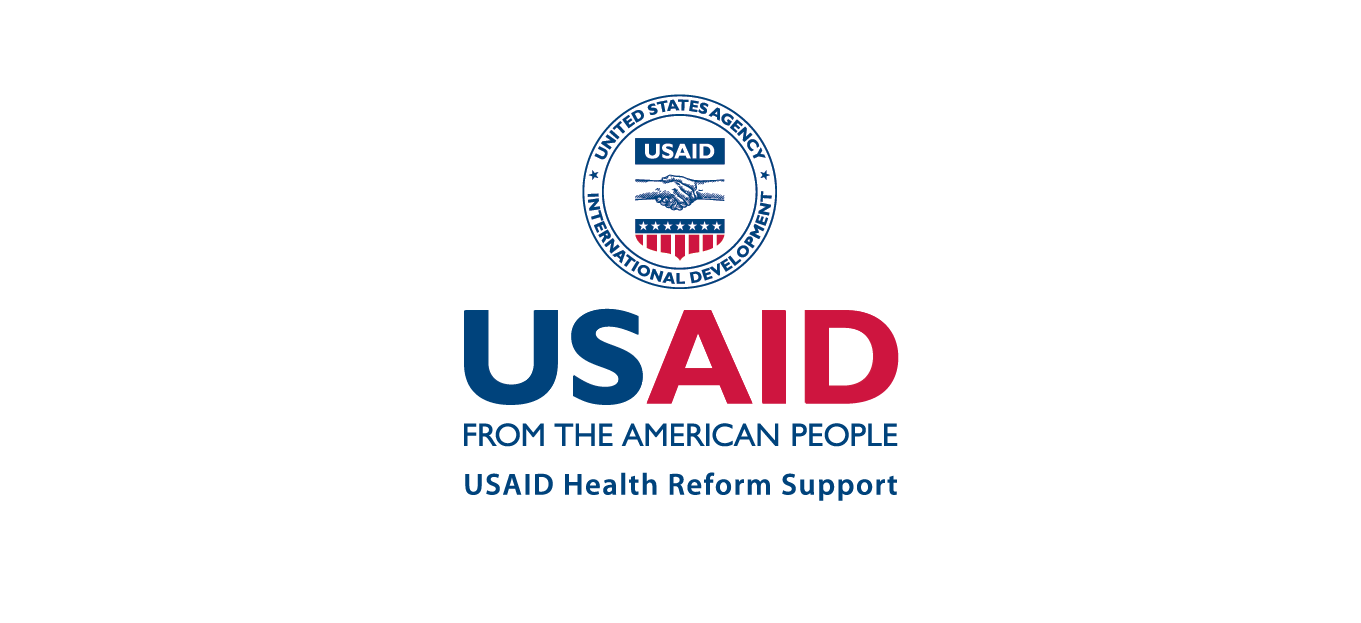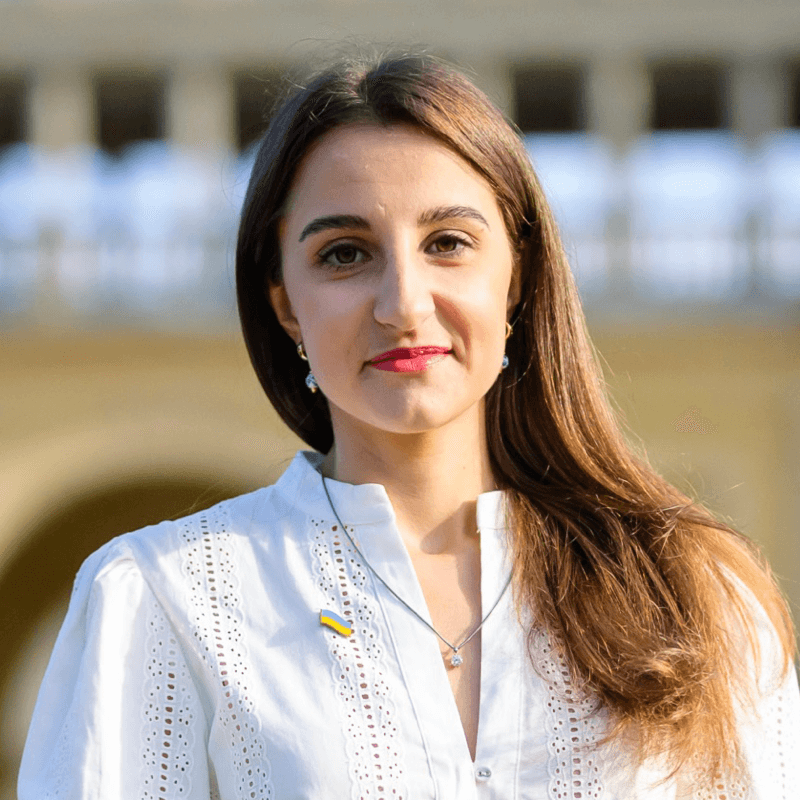In May, Russian Telegram channels are spreading messages about a “serious epidemiological situation” in the Kharkiv region. Referring to “their sources”, the authors write that Ukraine allegedly did not purchase vaccines for the population in order to save money. Therefore, due to the fact that more than 60% of children have not been vaccinated, an epidemic of measles and other infectious diseases is “expected” in Kharkiv. In order to strengthen their propaganda, Telegram channels claim that there is no drug for the treatment of epilepsy in Ukraine, as the Russian medicines allegedly ran out.
With the support of the USAID Health Reform Support project, VoxCheck analyzes and refutes public health narratives spread in the information space of Ukraine, Belarus, and russia on a weekly basis.
Russian Telegram channels are spreading information that epidemics of measles, mumps, whooping cough, and diphtheria will supposedly begin in the Kharkiv region due to insufficient vaccination among children. Propagandists also add that imported drugs (to replace Russian ones) against epilepsy are not being imported into Ukraine and that children are no longer being vaccinated against tuberculosis. Disinformers write that full vaccination of a child in the first year of life will cost around $1000.
What’s the reality?
First, propagandists are deliberately frightening the population with a possible measles epidemic. The number of children vaccinated against measles in 2023 has indeed decreased. For example, in the first two months of 2023, 15.6% of children (out of the annual plan) were vaccinated against measles, mumps, and rubella, while the necessary indicator for this period should be at least 17%.
According to Maksym Fokin, the head of the immunization department at the Center for Disease Prevention, the decrease in the number of vaccinations is due to the fact that many people have gone abroad. The expert notes that insufficient vaccination coverage can indeed lead to a measles outbreak. However, since the beginning of 2023, only 6 cases of the disease have been recorded throughout Ukraine, and there have been no cases of measles in the Kharkiv region. The last measles outbreak in Ukraine was in 2017-2019.
In February, the Ministry of Health of Ukraine announced that WHO and the EU had handed over 59 mobile vaccination buses to Ukraine. These mobile brigades can administer vaccinations against infectious diseases such as COVID-19, measles, and diphtheria. In March, UNICEF delivered 35,200 doses of a combined vaccine against measles, mumps, and rubella to Ukraine. As of April 1st, according to the Public Health Center under the Ministry of Health of Ukraine, there were over 117,000 doses of this vaccine in the country. However, we found no reports of allegedly poor quality of these vaccines as propagandists claim.
There is no evidence of a possible epidemic of mumps or whooping cough in Kharkiv region. There is no information in open sources about an increase in cases of these diseases.
Source: Ministry of Health of Ukraine
Second, there are medications for epilepsy in Ukraine. A patient with epilepsy should consult a family doctor, therapist, or pediatrician who will prescribe the medication. Medications for the treatment of this disease are included in the “Accessible Medicines” program, so patients can receive them for free or with a small fee. On pharmacy websites, you can see a wide selection of available epilepsy medications. Epilepsy medications are not only made in Russia but also in India, Canada, and France. On May 22, 2022, the Verkhovna Rada made changes to the law “On Medicinal Products” regarding the restriction of the circulation of drugs produced in Russia or Belarus.
In addition, propagandists claim that the only effective medication to prevent seizures in children is of Russian origin. This is not true. For example, on the website of one of the pharmacies, you can find anticonvulsant drugs such as “Carbamazepin” or “Gabantyn” from a Ukrainian manufacturer.
Russian Telegram channels claim that children have supposedly stopped receiving tuberculosis (BCG) vaccinations because previously the vaccines were only Russian-made. However, the Public Health Center states that in February 2023, the vaccination rate against tuberculosis (BCG) in children under one year has increased. The overall vaccination rate for the BCG vaccine in newborns at 3 days old as of February was almost 80%. In 2015, Ukraine decided to refuse vaccines from Russian manufacturers. The official website of the State Register of Medicines of Ukraine states that BCG vaccines are purchased from Indian and Bulgarian manufacturers. According to the Public Health Center, as of April 1, 2023, there were over 6,700 BCG vaccines available in the Kharkiv region.
Full vaccination of a child in the first year of life will not cost $1000. In Ukraine, children up to one year old must be vaccinated against 10 diseases: tuberculosis, poliomyelitis, diphtheria, whooping cough, tetanus, measles, hepatitis B, rubella, Haemophilus influenza infection, and epidemic parotitis. Vaccines are purchased with state funds, so they can be made for free.
This information piece was produced with the assistance of the United States Agency for International Development (USAID), provided on behalf of the people of the United States of America. This article’s content, which does not necessarily reflect the views of USAID, the United States Government, is the sole responsibility of Deloitte Consulting under contract #72012118C00001.
Attention
The author doesn`t work for, consult to, own shares in or receive funding from any company or organization that would benefit from this article, and have no relevant affiliations




